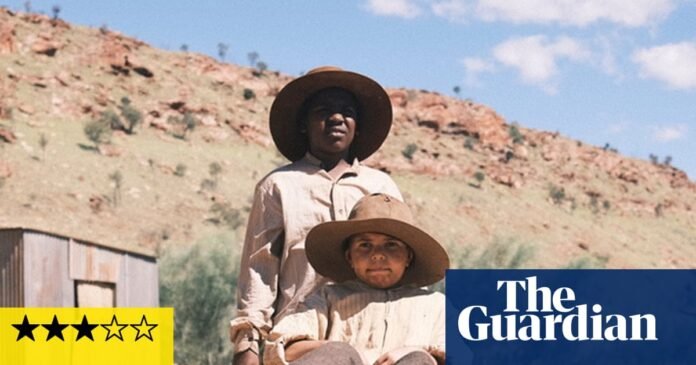Nobody came away from Warwick Thornton’s 2017 masterpiece Sweet Country thinking “this film needs a sequel” – but the Kaytetye auteur has never walked the expected path. He launched his feature career with the viscerally powerful, social realist drama Samson and Delilah and has since roamed freely across forms and genres, directing works as varied as the hybrid ghost-themed documentary The Dark Side; the wry, politically charged We Don’t Need a Map; the enigmatic religious allegory The New Boy; and even Firebite, a criminally under-appreciated vampire series set in the opal mines of Coober Pedy.
We’ve been conditioned to expect the unexpected. So perhaps it’s not all that surprising that Wolfram – the closing-night film of this year’s Adelaide film festival – is a sequel, or (as the festival guide calls it) a “follow-up”, to Sweet Country. That earlier film, a blistering neo-western about an Indigenous farmhand (Hamilton Morris) who shoots a white man in self-defence and is doggedly pursued by a police sergeant (Bryan Brown), ended with terrible finality – a closing act of violence tearing through whatever faint illusion remained that justice might have been possible for Indigenous people in the colonial frontier.
Wolfram unfolds four years later, in 1932, and while it carries the unmistakable fingerprints of its director, it’s a lesser and more diffuse work, with pacing issues and an emotional throughline that never quite takes hold. As always with Thornton, the atmosphere impresses, oozing a bruised kind of melancholy, though the film never quite coheres into a dramatically satisfying whole.
Several figures return from Sweet Country including the brooding station owner Mick Kennedy (Thomas M Wright, himself an accomplished film-maker, having directed Acute Misfortune and The Stranger), and his now 18-year-old Aboriginal son, Philomac (Pedrea Jackson). But Wolfram is a self-contained narrative, opening amid the wolfram (tungsten) mines, where Aboriginal siblings Max (Hazel Jackson) and Kid (Eli Hart) are forced to work under the watch of Billy (Matt Nable), whose sudden death upends their lives.
Joined by Philomac, they flee across an unforgiving landscape, pursued by Kennedy and a pair of outlaws: Casey (Erroll Shand) and Frank (Joe Bird). There’s also Pansy (Deborah Mailman), an Arrernte mother of stolen children, heading out of town with her partner, Chinese wolfram miner Zhang (Jason Chong), and her newborn baby, hoping to start anew in Queensland.
Wolfram has no true protagonist; it oscillates between these core plotlines in a sometimes drifting, uncertain way, as if the screenwriters (Steven McGregor and David Tranter, who wrote Sweet Country) weren’t entirely sure whose story to tell.
The characters often seem to only exist within this world, rather than propel the drama forward. For a long time, I assumed the first act was simply groundwork – immersing us in this rough-and-tumble milieu – before the arrival of a MacGuffin to send the plot barrelling ahead, like the death of Ewen Leslie’s character in Sweet Country. But that moment never really arrives and after a while the film’s slowness starts to feel lumbering.
Performances, however, are strong across the board. Wright brings an ugly, sweltering presence, with a feral glint in his eyes, and Jackson exudes a rare kind of magnetism; you just know he will make a fine leading man one day. I found myself most drawn to Pansy’s story, though she receives the least attention. In fact Wolfram commits one of the great crimes of contemporary Australian cinema: casting Mailman and relegating her to the sidelines. For such a commanding presence, Mailman has been afforded an astonishingly small number of leading roles; here, again, she’s underused. As a result, a pivotal late moment involving Pansy doesn’t land with the emotional force that was clearly intended.
Thornton, a rare director who is also his own cinematographer, knows how to conjure the thick, arid stink of a meat pie western. He delivers a film of rough-hewn, harsh beauty, as if it’s been dropped in the dust and stomped on. But the human and narrative elements of Wolfram never quite come to life; this is a minor work from a major talent.




